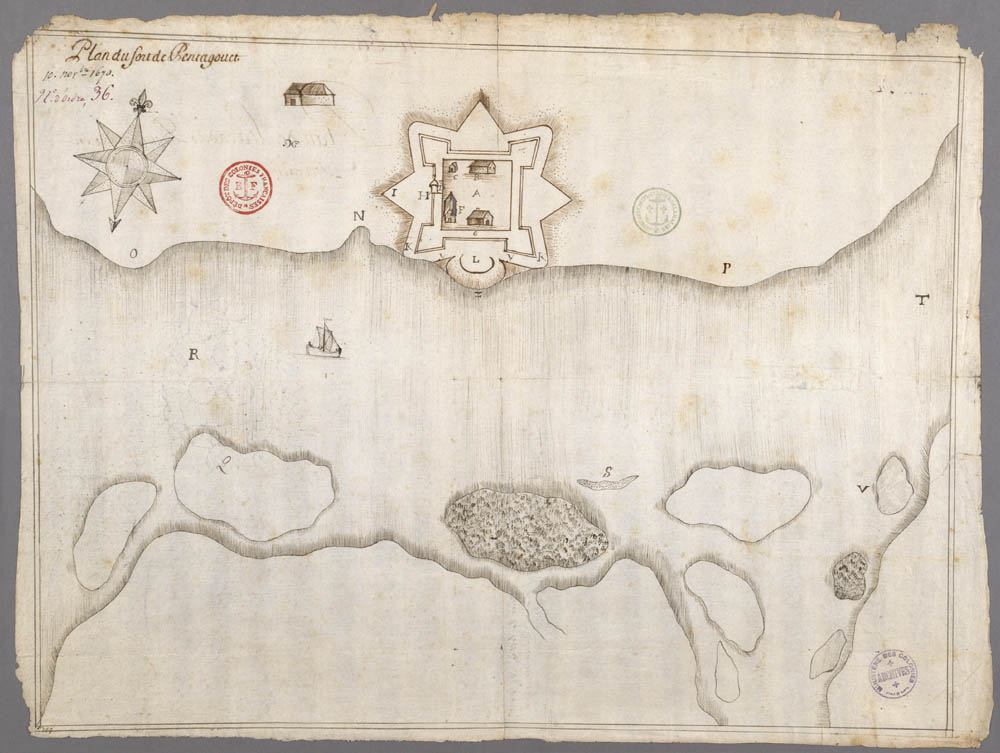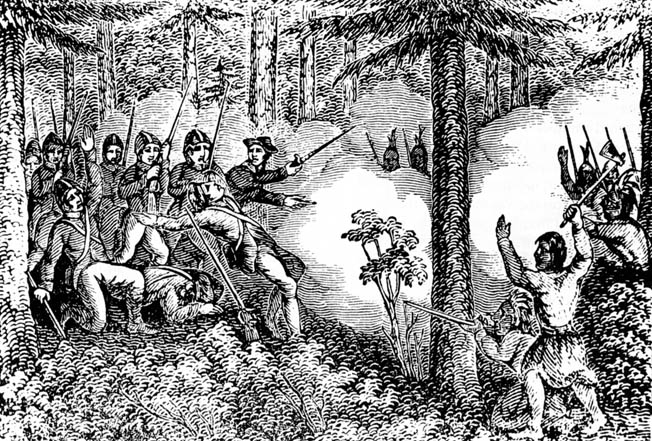Moosup Town
Just prior to the journey to Nanihigonset
Saccohan called Canonchet saw before him, in his mind's eye, the full panoply of his ancestor's Confederacy arrayed in a great war for justice and necessity. At last a chance to prove himself worthy of his blood with the wisdom and spectacle of the great Canonicus, and bind together the wounded strength of his people in overturning the yoke of the English. A proper Narragansett war of unrelenting steady pressure and high-walled invincibility led by its proper warchief Canonchet, until the incomers submit and refashion themselves to his liking. Much of these dreams are shared by many, but some of those like his son, Tashtassuck, yet have their own dreams too.
"It's too risky father, no matter how many times we punish open traitors, a Grand Council will always bring English spies into our bosom. And besides, this is old uncle Pessicus' doing, all those suffocating chatterers and weak-kneed old men that would caution for peace even as Uncas bars them inside their burning homes." His son hotly declared.
And here Canonchet's brother and right hand Massecump rumbled "Council or no Council, can't take a piss without the white man's Sachem hearing about it the next day. Always have to expect whispers to get out, always."
"Indeed, which is why the time for secret plans and conspiracies is long since passed, whatever corrupt English bargains or personal feuds or lingering bonds of kinship to enemy Sachems leads to such whispered betrayal is altogether a different kind of thing to stomach than to so easily rebuke and make war on the whole of the Narragansett. The public strength and public unity that comes with the sachems and sagramores in Council" Canonchet concluded.
Tashtassuck shook his head "And when on the path home as midnight travelers, no Grand Council to play to? Strength is strength, and unity follows strength. This is what has allowed Uncas and his dogs to feed on the blood of the Confederacy like wolves in truth. This is why we must do what is necessary to strike back- and have done to strike. This is why that drunk fool Cojono-"
"Cojonoquant was a sachem of the Narragansett, eldest son of grandfather Mascus, and in death if not life, he should be respected as such." Canonchet reprimanded sharply, then sighed. "He, he was not always as he was when the English rum took him, I remember him and father and uncle Sucquans- before he was also Pessicus, I remember...."
As Canonchet trailed off Massecump grunted "He did die well, if nothing else, kept up for a fair time. But for all his talk of dogs and wolves the little pup is right on this. Sure, not everyone has it in them to be another Uncas. But Quanapen and the rest of Cojonoquant's sons must avenge themselves of his loss, and that one is fierce. What matter are peace pledges to him, even if he would gladly turn to the lying English traders next?"
Seeing the chance to press his case Tashtassuck laid on "And he's just the start, Quaiapen might hate the English but neither does she have any love for Metacom nor for us who seek to follow him, and she has turned to strike at other 'warmongers' in the Nipmuc before. If she had her way, she would convince Pessicus to keep wary yes, but to make no move until her stonelayers have built up a wall all around the English and thereby win- when I am old and grey".
Caught once more in remembrances as Saccohan, Canonchet murmurs "Her sons, cousins Scuttup, and Quequakanewett, direct blood of the great Canonicus taken before their time... it is their stolen destiny that we now hold, and must uphold to prove ourselves worthy of." For a tender moment he just looks at his son, his sole surviving child, the rest taken by the foulness of English maladies.
But then Massecump somewhat awkwardly continues "And then there is her brother, tough old Ninigret, whose despair in his failures to strike down Uncas and the Mohegans led him to give up and hunker down, suffering the English as a nation of him himself, and all that he can take with him."
"And thereby flout our Confederate brotherhood and cut the heart out of the Narragansett!" Tashtassuck boils out, anger fueling his return to flow "this is why we should likewise ignore the prattling of Pessicus and continue our work with Pumham and Metacom and clear out what we can of English influence while we can still strike at them."
Canonchet can feel the righteous fury of his son and it burns in him too, normally in an icy wrath of cold flame, but now enkindled by young passion and by the casual brutality of Massecump's steady and hardened eyes. Maybe, there is a greater dream after all, bigger and bolder than Canonchet's for all its blood?
But no, Canonchet snaps out of it, the more temperate humors of his spirit dampen the haze, especially when he turns and sees the last Sachem of their pre-Council council, mother Wawaloam, old but all the more solid for it, weather-beaten and gnarled. Massecump too turns aside, he can only imagine also feeling like a young boy caught breaking or stealing something, as she unflinchingly stamped out the fire "What's this, 'strength is strength'? Pah, nonsense! Strength is magnanimity, strength is audacity, strength is kinship, strength is wit! Strength is born of a hundred, no a thousand mothers".
Wawaloam then takes a moment to grumble as she will on the state of the youth today, and the loss of the great sachems of days past who could embodies all thousand forms of strength in one, before then picking back up with her point, "-and well, in our weakness we must make that our strength, even surrounded by chaos and enmity. Especially surrounded by chaos and enmity. All sachems who now stand tall stand on the sacrifices of those who have fallen, as we now stand on the shoulders of Miantonomo. There's too few of us now, we are all accountable to too many disparate people, living and dead. The corrupt friends of the English have fled to Ninigret's longhouse, but even as they pull at his arm the fringes of Pessicus' support pull at the other, he must judge the security of this way and that. And so with him looking warily at Pessicus, and Pessicus staring so at you Canonchet and at Quaiapen, and with you watching Quanapen and Pumham, and around and around it goes, all are circling, and none can easily pounce."
At this even fiery Tashtassuck looks almost overawed at the carefully balanced web of friends and enemies so imagined, and at the prospect of navigating that web as a spider in its center. Seeing this Wawaloam breaks off "Bah, let an old woman chatter and she'll never stop. It's too early in the day to talk of politics- get going now and the sooner the journey's done. Travel fare is never more appetizing than when you can put it back down in time for dinner."
And they filed back in with the rest of the band, Canonchet couldn't help continuing as he passed by "Actually, I'm not so sure on Quaiapen, she's not indecisive so much as flexible, and I think-"
'Yes, yes, we'll have plenty of things to think and strategize over, but we do want to get there before the rest of the crowd. And besides," She continued, not unkindly "you forgot the one thing we Narragansett love more that we hate our enemies- we love to hear ourselves talk!"





















